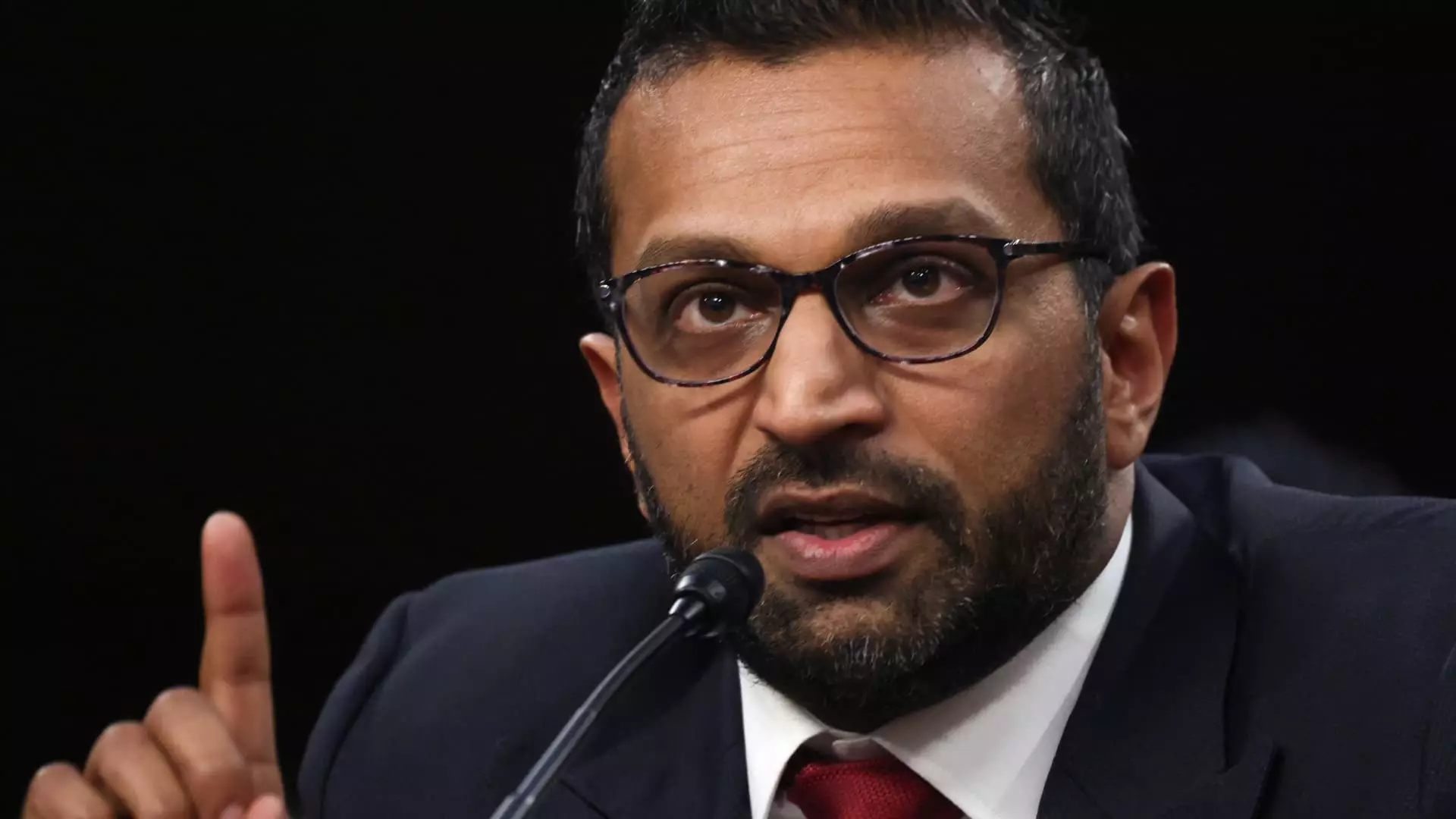The recent appointment of Kash Patel as the new FBI Director and his anticipated role as the acting head of the Bureau of Alcohol, Tobacco, Firearms and Explosives (ATF) has stirred significant discussion regarding law enforcement governance in the United States. The arrangement is unprecedented and raises substantial questions about the balance of power within federal agencies, particularly against the backdrop of ideological divides in American politics. As Patel steps into these influential roles, it is imperative to analyze the implications of this new leadership dynamic.
Patel, a well-known associate of former President Donald Trump, was confirmed as the FBI director amid intense scrutiny. His past as a vocal supporter of aggressive reforms within the FBI reflects a posture that diverges greatly from long-standing norms within federal law enforcement. Concerns raised by Democrats about his intention to overhaul the FBI only add layers of complexity to Patel’s dual role. Critics argue that placing someone with so much political baggage at the helm of two significant law enforcement agencies could compromise their integrity and independence.
Moreover, the political ramifications of Patel’s leadership will extend beyond intra-agency dynamics. With the polarization surrounding crucial issues such as gun control and civil liberties, the appointment can be interpreted as a strategic maneuver that appeals to Trump’s base while potentially alienating more moderate and progressive factions.
The ATF operates with a workforce of around 5,500 personnel, focused on enforcing laws related to firearms, explosives, and arson. Its expansive responsibilities include licensing federal firearms dealers, tracing firearms used in criminal activities, and analyzing intelligence related to violent incidents. The agency’s historical role has often placed it in the crosshairs of political debate, primarily due to its gun regulation policies.
In the wake of the Biden administration’s recent regulatory efforts, aimed at addressing concerns surrounding ghost guns and background check requirements, the potential impact of Patel’s leadership becomes all the more critical. Conservatives have been vocal in their opposition to the ATF’s regulatory frameworks, suggesting even its dissolution. Patel’s appointment could signal a potential pivot back towards a more permissive stance on gun laws, aligning with the demands of gun rights advocates.
The recent dismissal of Pamela Hicks, the ATF’s chief counsel, underlines the tense atmosphere surrounding the agency’s leadership. Attorney General Pam Bondi justified this controversial decision by alleging that Hicks’ leadership was contributing to a perceived bias against gun owners. This firing perhaps foreshadows a broader trend of purging perceived dissenters within the agency, reflecting an increasingly politicized environment.
Hicks, who openly expressed her pride in serving as chief counsel, represents the kind of institutional memory and legal guidance often seen as necessary for the proper functioning of regulatory bodies. With Patel’s imminent takeover of the ATF, the question arises whether a new leadership style will disrupt ongoing initiatives at the agency or lead to new priorities in enforcement and regulation.
The public and institutional reactions to Patel’s dual leadership have been polarized. Gun safety advocates have voiced strong opposition, characterizing Patel as a “gun rights extremist.” Conversely, groups advocating for gun rights have lauded his appointment as a significant advancement for constitutional rights. This dichotomy exemplifies the broader cultural chasm that exists around gun regulation and ownership in America.
As Patel prepares to take on these high-stakes positions, the consequences extend well beyond administrative reshuffling; they represent a potential paradigm shift in how firearms and related matters are regulated and enforced in the United States. The long-term implications for both public safety and civil liberties will likely be at the forefront of ongoing debates.
Kash Patel’s ascension to key law enforcement roles amid a backdrop of political strife raises important considerations for the future of federal agencies like the FBI and ATF. Enthusiasts for gun rights may see this as a pivotal moment for their cause, while advocates for gun regulation may fear it ushers in an era of increased permissiveness. As this situation unfolds, it will be critical to closely monitor the impacts on policy and agency operations, as they may set precedents for generations to come.


Leave a Reply